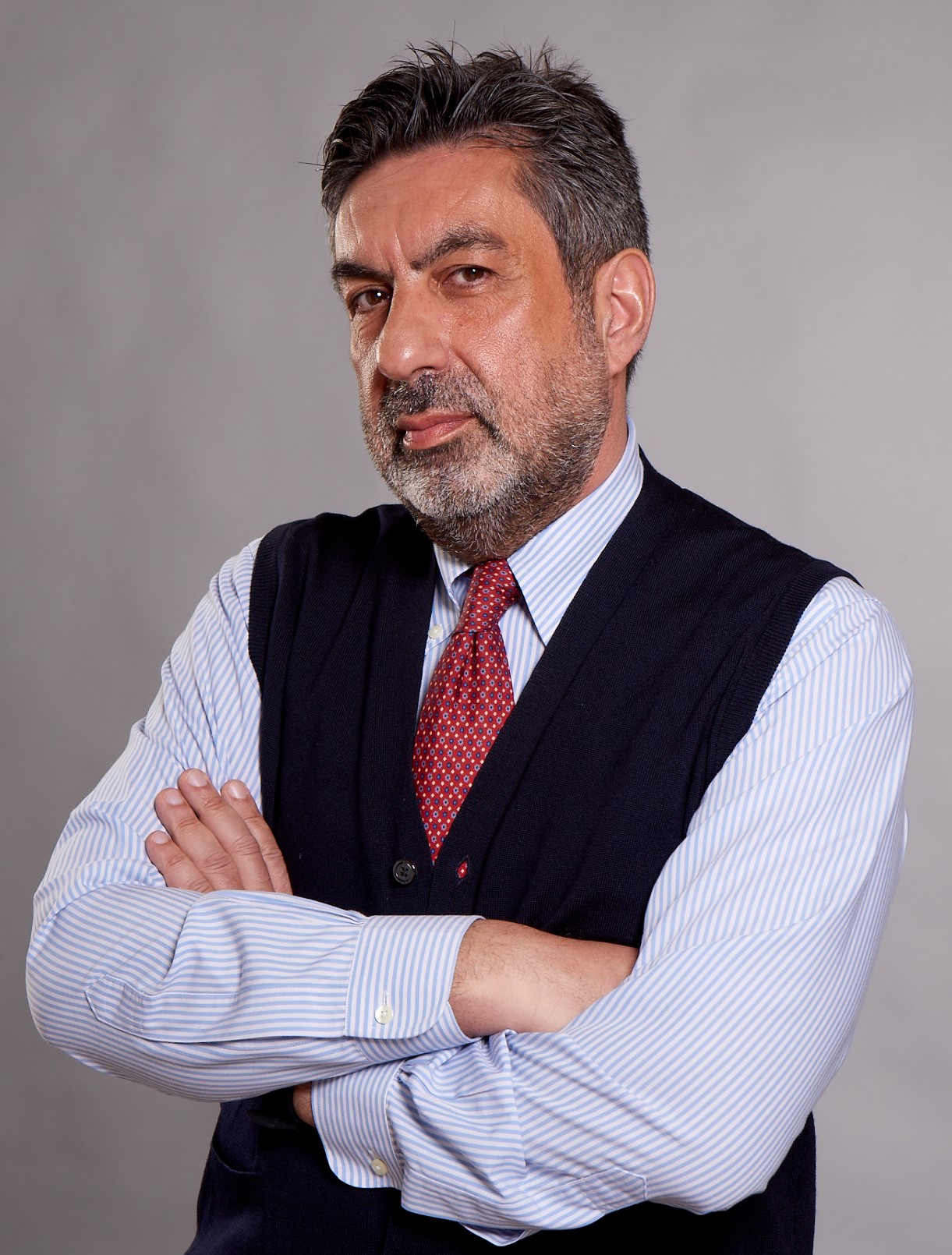SECURSAT, THE FUTURE OF SECURITY IS A FLEXIBLE, TECHNOLOGICAL, INCLUSIVE AND SUSTAINABLE BUSINESS MODEL
Interview of Giuseppe Calabrese, Secursat's Chief Executive Officer
International terrorism, cybersecurity and pandemic are threats that, while appearing autonomously, have actually interacted in recent years in forcing governments, organizations and individual citizens to consider security, in a broad sense, as an essential component of normality, right at the moment. in which the most advanced opinion makers in the sector deem it necessary to go beyond the boundaries of specialization to make it a global "commodity". What is your assessment of this?
The rapid change of the scenarios in which we move and their complexity make it difficult to elaborate definitive considerations, as the changes are now faster than our narration. Certainly, security is not a linear process but, rather, a widespread process and security men and companies could well be lent to manage these complexities. However, when we talk about security today, we still think of a closed and obsolete world, perhaps because it is often managed by “experts” who define themselves as such and, usually, it is poorly communicated, in particular through an improvised use of new media. There is a lot of talk about it using self-referential and alarmist indicators, declining it through perimeters, borders and territories redefined at will and, sometimes, even erecting arbitrary professional “walls”.
 First of all, it is necessary to overturn a static, stagnant approach, devoid of vision, perspective and harmony that continues to condition choices, ignoring that we are now in a boundless labyrinth where everything flows quickly. All places are explorable points Secursat, the future of security is a flexible, technological, inclusive and sustainable business model interview with Giuseppe Calabrese, Chief Executive Officer of Secursat by Raffaello Juvara with the simple movement of a thumb and an index finger, to reveal any island and capture the still image of whoever has landed there. Physical and virtual spaces intersect to the point of almost canceling each other's perimeters of competence. To interpret threats, therefore, it is necessary to overcome the boundaries defined by traditional players and managers as well as by obsolete roles in organizations, through a comparison between generations, also transforming the language. It is necessary to add new resources by reviewing the competitive scenarios to enter a logic of free market and free competition, with new methods of qualification and selection to make room for new opportunities and new visions. The traditional approach to the phenomena you mentioned is overdue, these are autonomous manifestations, but with similar consequences: the mutation of risk scenarios.
First of all, it is necessary to overturn a static, stagnant approach, devoid of vision, perspective and harmony that continues to condition choices, ignoring that we are now in a boundless labyrinth where everything flows quickly. All places are explorable points Secursat, the future of security is a flexible, technological, inclusive and sustainable business model interview with Giuseppe Calabrese, Chief Executive Officer of Secursat by Raffaello Juvara with the simple movement of a thumb and an index finger, to reveal any island and capture the still image of whoever has landed there. Physical and virtual spaces intersect to the point of almost canceling each other's perimeters of competence. To interpret threats, therefore, it is necessary to overcome the boundaries defined by traditional players and managers as well as by obsolete roles in organizations, through a comparison between generations, also transforming the language. It is necessary to add new resources by reviewing the competitive scenarios to enter a logic of free market and free competition, with new methods of qualification and selection to make room for new opportunities and new visions. The traditional approach to the phenomena you mentioned is overdue, these are autonomous manifestations, but with similar consequences: the mutation of risk scenarios.
Clear visions, specific management and authoritative political guidelines by public and private organizations are needed because risk management cannot be a component of normality, or always an emergency, if in this sense we mean a passive acceptance of what is to come, there is no normality in the millions of pandemic deaths if not controlled or managed, in millions of cyber attacks a day. The "commodity" is technology, not competence or professionalism: the real challenge is in the ability to use technology to understand and mitigate risks and threats in a now digitalized context. Risk management must deal with the absence of borders and, at the same time, with the need to define limits; it is necessary to protect without limiting, to guarantee high standards without harnessing spaces and changing scenarios, to be flexible without setting rigid boundaries. The technologies must be open to integration and remote management and must be oriented towards the collection and integration of data; at the same time, it is necessary to work with adequate skills in the design of network infrastructures. Consequently, the term "specialization" now seems an understatement to define a fundamental function in the organization of community life. To be sure, we very often have to renounce spaces of individual freedom to conquer collective freedom and specialization alone is no longer enough when, on the other hand, professionalism, managerial competence, authority, social reputation are needed. It is therefore necessary to change the parameters for selecting people, skills and companies to build models that respond to the new needs and new scenarios that arise every day.
Faced with this scenario, how does the national security supply chain compare to other countries?
In my opinion, the traditional chain of national security is going through a moment of maximum difficulty. The illusion of doing finance with "labor intensive" activities, abandoning the control of the market deriving from training, competence and professionalism, has favored some historical entrepreneurs but they have been and will all be aggregations without added value, where the same expected synergies do not have allowed to achieve the announced economic and financial results. There are no structured data of a sector where submerged systems made up of cooperatives prevail, real supply chains in the leading organizations themselves. A sector that has failed to outline a pricing policy causing the race to the bottom, with attempts to get out of it by looking for “pseudo-technological” businesses and thus damaging other segments, both in quality and quantity.

What model does Secursat play and what role has it carved out so far in the general panorama?
Secursat's entrepreneurial project addresses these dispersions of vision and oversees "non-spaces", proposing technological strategies and solutions to ensure high safety standards for the protection of assets, data, people and the new limits within which they operate , but having as a guide the respect of the rules and the ethics of responsibility. We manage risks starting from organizational consultancy, we protect and monitor places that we and our children pass through every day (banks, shopping centers, workplaces, stadiums, production areas) and we feel their responsibility and value, proposing ourselves with a flexible approach and innovative also through the analysis of data and information on behavior to improve the quality of spaces, never to limit them but only to better protect them and anticipate risks. We organize and monitor the safety of over 5,000 places, guaranteeing the protection and protection of more than 40,000 people between operators and professionals and more than 1,000,000 visitors every day.
What are the key points of your proposal today and what will they be tomorrow?
The results achieved have formed the basis for future development strategies based on investments aimed at the design, digitization and innovation of traditional risk management tools and service models. In interconnected scenarios that change in opportunities and constraints, companies, at all managerial levels, are required to make increasingly rapid choices based on solidity and certainty of numbers, on the ability to react to external stimuli and approaches to work increasingly based on value of people, the importance of solid networks, technological development and the ability to interpret and analyze data and information. We imagined an entrepreneurial project with a long and fertile road of adventures and experiences without rushing the times or seeking immediate success, but rethinking a model that has become obsolete to be innovated according to ethical business principles, compatible with new and different security needs and in line with the new global scenarios, where even the ability to communicate becomes strategic because it is an integral part of security. In a broader and more institutional vision, security, to be effective, must reach the community in a clear and widespread way and must be understood and perceived thanks to an unambiguous communication.
In conclusion, do you think that there will continue to be talk of a "security market" in the future or will there be other criteria for definition?
We must believe in ourselves as managers and entrepreneurs, without shifting responsibility elsewhere: the market is always built between supply and demand and only the ability to propose innovation can change needs and pave the way for new business and management models, new products and new services. . It is no longer an era of quantity in this sector, companies will have to be flexible, technological, inclusive, sustainable and I do not see significant signs of all this. For this reason, we imagine a gap between what is labor intensive and quantitative and a new scenario (or a new definition criterion) of "Security Consultancy & Digital Companies", in which we would like to place ourselves as a listened player. This is our ambition now.
